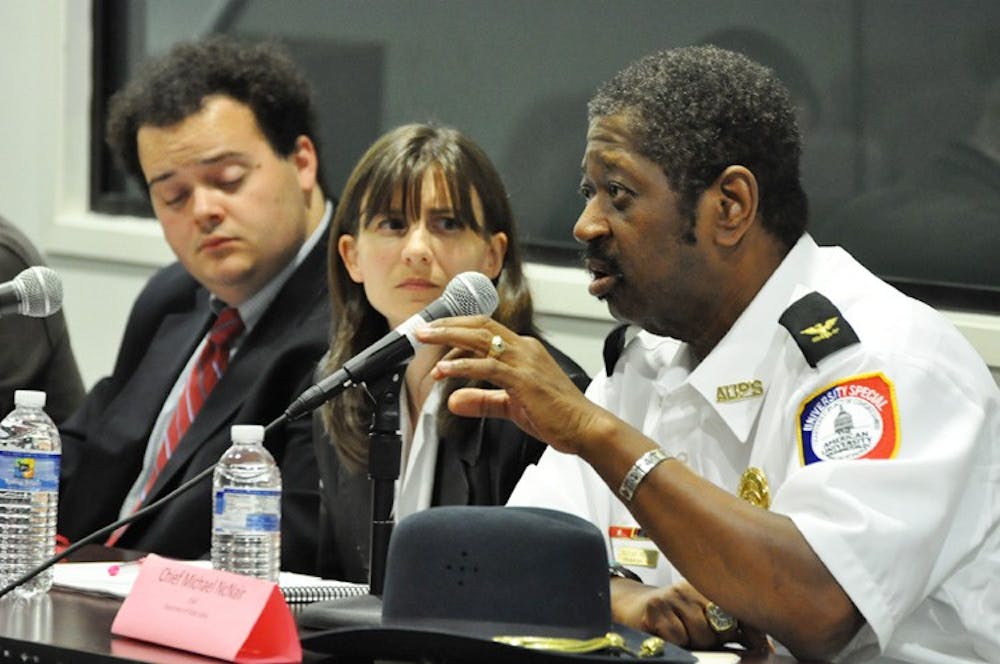Members of the AU administration stressed that new changes to the Student Conduct Code are being made with students’ best interests in mind at a Conduct Code Town Hall Wednesday night.
At the event, which was co-sponsored by the Inter-Fraternity Council and the Panhellenic Council, Public Safety Chief Michael McNair said he does not want students to feel that they have no freedoms living off-campus.
“Everything we do is not with the intent to create a ‘police state,’” he said. “It is to foster your college experience and let you have fun. But with fun comes responsibility.”
McNair explained that Public Safety’s jurisdiction does not reach outside of the District concerning off-campus conduct code violations.
Public Safety does, however, have agreements set up with police departments in neighboring counties, according to McNair.
For example, if a resident of Montgomery County files a noise complaint against an AU student, that police report will be sent to Public Safety, and appropriate action will be taken from there.
While Public Safety has limitations to its jurisdiction, the new changes to the Student Conduct Code give the University the authority to take action against students for any alleged misconduct that occurs off campus, regardless of whether or not the misconduct violates local, state or federal laws, The Eagle previously reported.
In a previous interview with The Eagle, Dean of Students Rob Hradsky said, “University policy does not place geographical boundaries on the jurisdiction of the Student Conduct Code.”
Before the conduct code revisions, the University needed a police citation to discipline off-campus students.
Student Advocacy Center Deputy Director Matthew Kabak voiced concerns early in Wednesday night’s event that the Conduct Code changes are too drastic and widespread. He also fears the administration is not adequately addressing the concerns of students.
“From the conversations I’ve had with the administration, it seems like the University wants best for us,” he said. “But that doesn’t seem reflected in these new rules.”
During the question-and-answer session portion of the event, a student asked why all students are seemingly being held accountable for the noise violations of one or two houses with unsanctioned fraternities.
McNair said Public Safety and MPD do not make distinctions between students in unsanctioned fraternities and other students.
Neighbors do not make that distinction either, he said. They will call in a noise complaint on a house regardless of whether or not it is affiliated with a sanctioned or unsanctioned fraternity.
He also said neighbors in the community surrounding AU typically do not call in noise complaints against a house with AU students unless they have consistently had problems with that house.
“People call to address things we would all be bothered by,” McNair said.
Carter Gibson, the executive vice president of the Inter-Fraternity Council, said he has tried to establish a good relationship with his neighbors by keeping an open line of communication with them. He encouraged the mostly greek-affiliated audience to do the same.
“Let neighbors know how to contact you so you don’t have to go through this student conduct process,” he said.
jryan@theeagleonline.com





